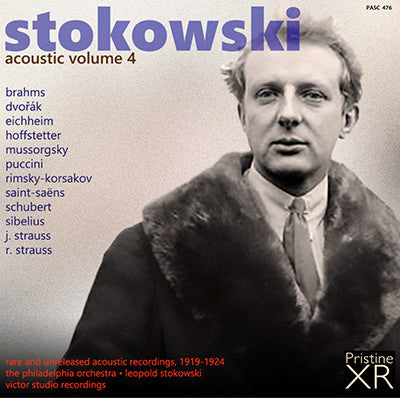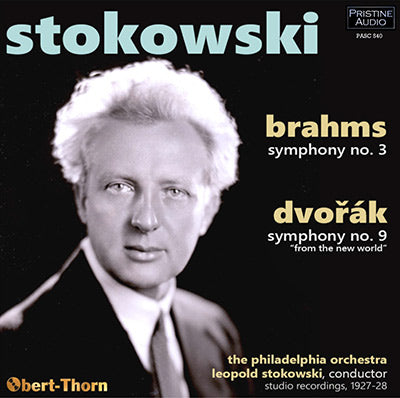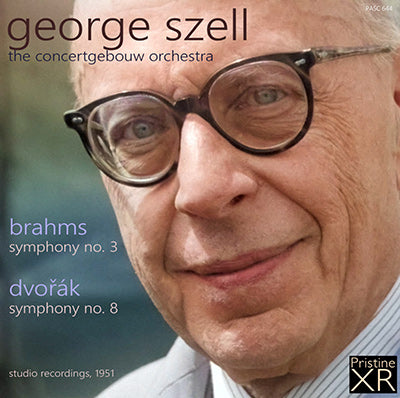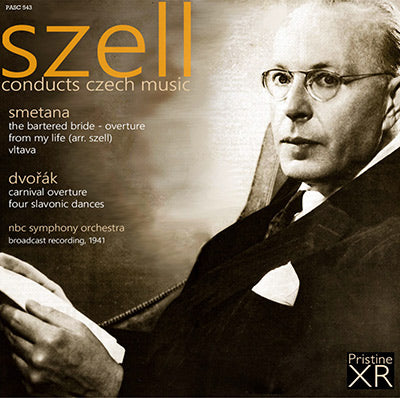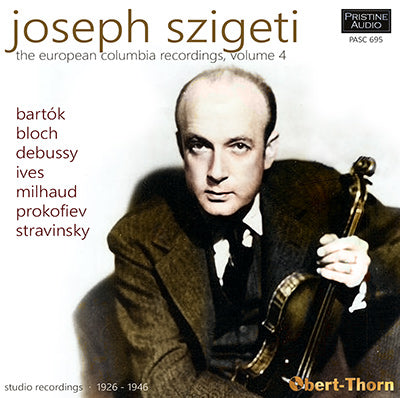Dvořák
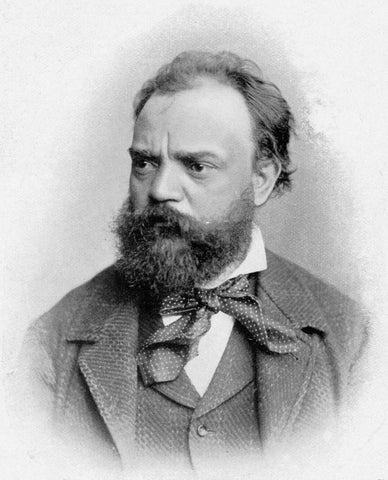
Dvořák displayed his musical gifts at an early age, being an apt violin student from age six. The first public performances of his works were in Prague in 1872 and, with special success, in 1873, when he was aged 31. Seeking recognition beyond the Prague area, he first submitted a score of his First Symphony to a prize competition in Germany, but he did not win, and the manuscript, not returned, was lost until rediscovered many decades later. Then in 1874 he first made a submission for the Austrian State Prize for Composition, including scores of two further symphonies and other works. Johannes Brahms, unbeknownst to Dvořák, was the leading member of the jury and was highly impressed. The prize was awarded to Dvořák for 1874[a] and again in 1876 and in 1877, when Brahms and the prominent critic Eduard Hanslick, also a member of the jury, made themselves known to him. Brahms recommended Dvořák to his publisher, Simrock, who soon afterward commissioned what became the Slavonic Dances, Op. 46. These were highly praised by the Berlin music critic Louis Ehlert in 1878, the sheet music (of the original piano 4-hands version) had excellent sales, and Dvořák’s international reputation at last was launched.
Dvořák’s first piece of a religious nature, his setting of Stabat Mater, was premiered in Prague in 1880. It was very successfully performed in London in 1883, leading to many other performances in the United Kingdom and United States. In his career, Dvořák made nine invited visits to England, often conducting performances of his own works. His Seventh Symphony was written for London. Visiting Russia in March 1890, he conducted concerts of his own music in Moscow and Saint Petersburg. In 1891 Dvořák was appointed as a professor at the Prague Conservatory. In 1890–91, he wrote his Dumky Trio, one of his most successful chamber music pieces. In 1892, Dvořák moved to the United States and became the director of the National Conservatory of Music of America in New York City. While in the United States, Dvořák wrote his two most successful orchestral works. The Symphony From the New World spread his reputation worldwide. His Cello Concerto is one of the most highly regarded of all cello concerti. Also, he wrote his American String Quartet, his most appreciated piece of chamber music. But shortfalls in payment of his salary, along with increasing recognition in Europe and an onset of homesickness, led him to leave the United States in 1895 and return to Bohemia.
Dvořák’s nine operas other than his first, Alfred, have librettos in Czech and were intended to convey Czech national spirit, as were some of his choral works. By far the most successful of the operas is Rusalka. Among his smaller works, the seventh Humoresque and the song "Songs My Mother Taught Me" are also widely performed and recorded. He has been described as "arguably the most versatile... composer of his time".

Dvořák
Acoustic studio recordings, 1919-1924
Total duration: 64:44
The Philadelphia Orchestra
BRAHMS Symphony No. 3
DVOŘÁK Symphony No. 9, “From the New World”
Victor Studio Recordings, 1927 – 1928
Total duration: 78:34
The Philadelphia Orchestra
conducted by Leopold Stokowski
BRAHMS Symphony No. 1
BRAHMS Symphony No. 2
BRAHMS Symphony No. 3
BRAHMS Symphony No. 4
DVOŘÁK Symphony No. 9, “From the New World”
LISZT Hungarian Rhapsody No. 2
J STRAUSS II On The Beautiful Blue Danube
J STRAUSS II Tales from the Vienna Woods
WEBER Invitation to the Dance
Victor studio recordings, 1926-1933
The Philadelphia Orchestra
conducted by Leopold Stokowski
BRAHMS Symphony No. 3
DVOŘÁK Symphony No. 8
Studio recordings, 1951
Total duration: 67:00
Concertgebouw Orchestra of Amsterdam
conducted by George Szell
SMETANA The Bartered Bride - Overture
SMETANA (arr. Szell) - From My Life
DVOŘÁK Carnival Overture
DVOŘÁK Four Slavonic Dances
SMETANA Vltava
Broadcast recording, 1941
Total duration: 76:37
NBC Symphony Orchestra
conducted by George Szell
BACH Violin Sonatas 1 & 2
BACH Concerto for Two Violins
HANDEL Violin Sonata No. 4
TARTINI Violin Sonata in G
TARTINI Violin Concerto in D minor
MOZART Violin Sonata No. 21
MOZART Violin Concerto No. 4
short works by BACH, EXAUDET, TARTINI, VERACINI
BEETHOVEN Violin Concerto
WEBER Violin Sonata No. 3
PAGANINI Caprices
SCHUBERT Rondo
MENDELSSOHN Violin Concerto
BRAHMS Violin Concerto
BRAHMS Violin Sonata No. 3
Music by Berlioz, Hubay, Elgar, Kreisler, Dvořák, Chabrier, Rimsky-Korsakov, Falla
WARLOCK Capriol Suite
PROKOFIEV Violin Concerto
BARTÓK Hungarian Folk Tunes
BARTÓK Romanian Folk Dances
IVES Violin Sonata No. 4
BLOCH Violin Concerto
music by Debussy, Ravel, Milhaud, Lie, Szymanowski, Scriabin, Stravinsky

